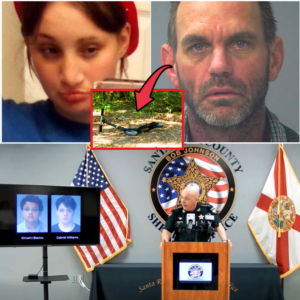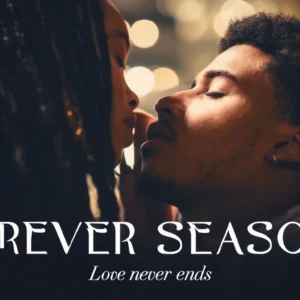“Exploited for Views?” Netflix’s ‘Bad Influence’ Exposes the Shocking Truth Behind America’s Youngest Influencers — Viewers Are Outraged

The world of social media influencers has long been a subject of fascination and scrutiny. However, Netflix’s latest docuseries, “Bad Influence: The Dark Side of Kidfluencing,” brings to light a particularly disturbing facet: the exploitation of child influencers. Focusing on the rise and controversies surrounding YouTube sensation Piper Rockelle and her mother-manager, Tiffany Smith, the series has ignited widespread outrage and prompted critical discussions about the ethics of child influence in the digital age.
The Rise of Piper Rockelle and ‘The Squad’
Piper Rockelle’s journey into the limelight began at a tender age. Born in Georgia, she was introduced to the world of child beauty pageants by her mother, Tiffany Smith. Despite initial setbacks in pageantry, Piper found her niche on social media platforms. Starting with the lip-syncing app Musical.ly, she quickly gained popularity, which seamlessly transitioned to YouTube. Her content, characterized by pranks, challenges, and “crush” scenarios, resonated with a young audience, amassing over 12 million subscribers. Central to her channel was “The Squad,” a group of young influencers who collaborated on content, creating a seemingly fun and engaging environment.
Behind the Scenes: Allegations of Manipulation and Abuse
While the on-screen camaraderie painted a picture of innocent fun, “Bad Influence” uncovers a darker narrative. In January 2022, eleven former members of The Squad filed a lawsuit against Tiffany Smith, alleging severe misconduct. The accusations ranged from emotional and verbal abuse to sexual harassment and financial exploitation. Specific claims included coercing minors into creating provocative content, enforcing grueling work hours without compensation, and fostering a manipulative environment where dissent was met with threats and intimidation.
One particularly unsettling allegation detailed how Smith would use pets to voice inappropriate comments to the children, blurring boundaries and creating an uncomfortable atmosphere. Additionally, the lawsuit highlighted instances where minors were pressured into participating in “crush content,” which involved simulated romantic scenarios, raising concerns about the sexualization of underage individuals for online engagement.
The Legal Battle and Its Aftermath
The lawsuit culminated in a $1.85 million settlement in October 2024, with Smith not admitting to any wrongdoing. Despite the financial resolution, the case cast a spotlight on the largely unregulated realm of child influencers and the potential for exploitation. Notably, no criminal charges were filed against Smith or her partner, Hunter Hill, despite the severity of the allegations.
In the wake of the controversy, Piper’s online presence experienced fluctuations. Her YouTube activity diminished post-December 2024, though she maintained a presence on platforms like TikTok and Instagram. Observers noted her collaborations with other creators, indicating an attempt to navigate her career amidst the turmoil.
Industry-Wide Implications and Calls for Reform
“Bad Influence” serves as a cautionary tale, shedding light on the broader issues within the child influencer industry. Experts featured in the docuseries, such as child abuse detective Kristie McVee and child exploitation educator Sarah Adams, emphasize the inherent risks of commodifying children’s online presence. They point to the absence of stringent labor protections and the potential for long-term psychological harm.
The documentary underscores the urgent need for regulatory frameworks tailored to the digital age. Traditional entertainment industries have established guidelines to protect child actors, but the rapid evolution of online platforms has outpaced legislative measures. Advocates are calling for policies that ensure fair compensation, limit working hours, and provide mechanisms to address grievances for young influencers.
Public Reaction and Ethical Debates
The release of “Bad Influence” has elicited strong reactions from viewers and industry insiders alike. Many express outrage over the alleged exploitation and question the role of parents in safeguarding their children’s welfare in the pursuit of fame and financial gain. Discussions have also centered on the responsibility of platforms like YouTube in monitoring and regulating content involving minors.
Critics argue that the monetization structures of these platforms inadvertently incentivize sensational and potentially harmful content. The allure of substantial earnings can blur ethical boundaries, leading to decisions that prioritize views over the well-being of young participants. This has sparked debates about the moral obligations of content creators, parents, and platform administrators in fostering a safe and ethical digital environment.
Moving Forward: Lessons and Recommendations
The revelations from “Bad Influence” highlight the necessity for a multifaceted approach to address the challenges within the child influencer sphere:
Legislative Action: Governments should collaborate with digital platforms to establish clear regulations that protect child influencers, ensuring their rights and well-being are prioritized.
Platform Accountability: Social media companies must implement stricter guidelines and monitoring systems to detect and prevent the exploitation of minors on their platforms.
Parental Responsibility: Parents and guardians should be educated about the potential risks associated with child influencing and be vigilant in safeguarding their children’s interests.
Public Awareness: Viewers can play a role by critically assessing the content they consume and supporting creators who adhere to ethical standards.
While the digital age offers unprecedented opportunities for creativity and connection, it also presents new challenges that society must address. “Bad Influence: The Dark Side of Kidfluencing” serves as a stark reminder of the potential perils lurking behind the screens and the collective responsibility to protect the youngest members of the online community.

